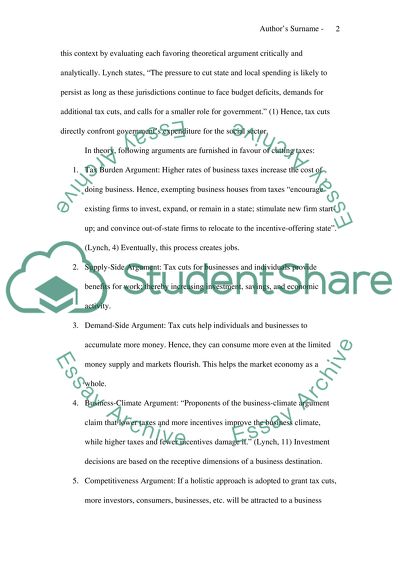The Major Arguments for and against Cutting Taxes to Promote Economic Essay. Retrieved from https://studentshare.org/finance-accounting/1439104-the-major-arguments-for-and-against-cutting-taxes-to-promote-economic-development
The Major Arguments for and Against Cutting Taxes to Promote Economic Essay. https://studentshare.org/finance-accounting/1439104-the-major-arguments-for-and-against-cutting-taxes-to-promote-economic-development.


